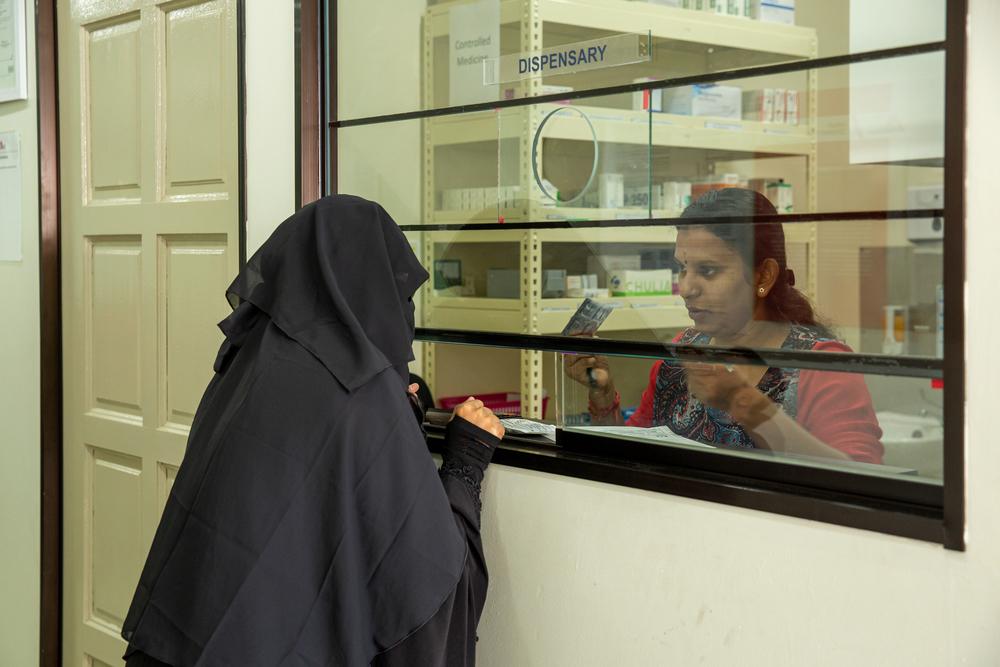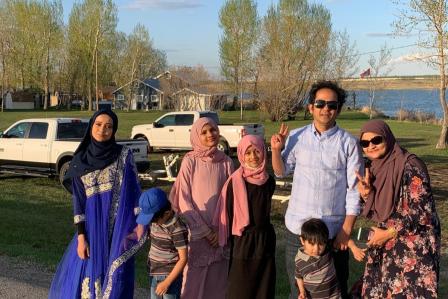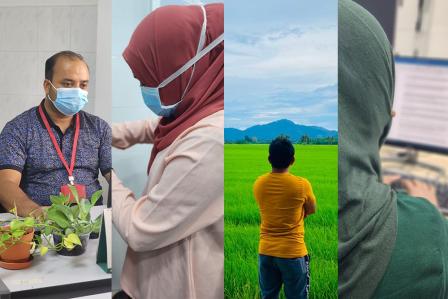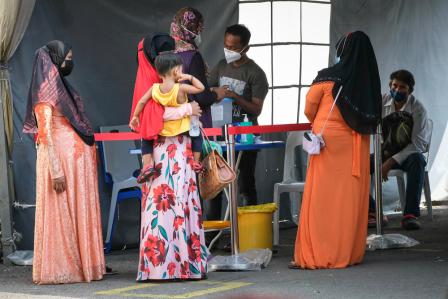Malaysia: Safe and affordable healthcare for all essential in health system reform

The head of pharmacy at the Doctors Without Borders clinic in Penang, explains how to take a prescription to a Rohingya patient’s wife. Malaysia, 2019. © Arnaud Finistre
Doctors Without Borders / Medecins Sans Frontieres (MSF) welcomes Health Minister Khairy Jamaluddin’s proposal to reform the country’s health system and calls for this reform to include safe and affordable healthcare for all in Malaysia, regardless of country of origin, citizenship or documentation status.
“A reform of the national health system is timely. The COVID-19 pandemic has claimed close to 32,000 lives in Malaysia and continues to spread further, exposing health disparities between those who have access to the system and those who are excluded,” says its Head of Mission Dirk van der Tak.
As an international medical humanitarian organisation supporting marginalised communities in Malaysia with primary healthcare, Doctors Without Borders has witnessed first-hand how limited access to healthcare has had detrimental consequences for thousands of people, including pregnant women from refugee and asylum seeking communities seeking antenatal care, among other vulnerable groups in Malaysia.
Due to a fear of arrest and detention, Doctors Without Borders has witnessed how refugees and asylum seekers without UNHCR documents or people without any formal identification delay medical treatment, even when they face life-threatening conditions. This is because of the 20-year-old Ministry of Health Circular 10/2001 that obliges government healthcare staff to report undocumented persons to the immigration authorities. The circular not only deters people from seeking medical care, but also pushes healthcare staff to break the universal medical-ethical principle of causing no harm to the patient as reporting an undocumented patient would lead to their arrest or detention.
Doctors Without Borders has also witnessed refugees and asylum seekers who delay or do not seek healthcare because they are unable to afford the medical fees that foreigners are subjected to in the country. As refugees are forbidden by law to work, those fees remain prohibitively high, even after the 50% discount extended by the government to holders of documentation issued by the UN Refugee Agency. This policy forces already vulnerable families into making impossible choices, between healthcare, food or housing. In the long-term, this also increases the burden on Malaysia’s public healthcare system, as delayed treatment can result in increased costs of using secondary health care.
Doctors Without Borders calls on the Ministry of Health to steer a new course forward when reforming the health system to make it inclusive, safe and affordable for all, including refugees and asylum seekers who are among the most vulnerable in Malaysia. Immediate priorities should include repealing the Ministry of Health Circular 10/2001 and introduction of proportional fees for people without formal access to employment or social safety nets, including refugees, asylum seekers and stateless people.
A future-proof and sustainable national healthcare system must take into account public health priorities and be grounded on the principles of medical ethics. This means that everyone, irrespective of country of origin, citizenship and documentation status, should be able to access medical care without fear of coming forward to health workers or delaying treatment because they cannot afford it.Dirk van der Tak, Head of Mission
Doctors Without Borders stands ready to work with the government to support solutions for an inclusive, safe and affordable healthcare for all.




